My reading for October 2023 was dominated by the climate crisis and the horrific situation in Gaza.
I’ve been travelling a lot and have got behind with these roundups, and with blogging in general, so here’s an attempt to restart. In October, I read mostly non-fiction books inspired by the twin crises overshadowing everything right now: Gaza and the climate. It sounds quite heavy, I suppose, but reading is the only way I know to cope with things that feel overwhelming, and I find that the context provided by a good book often helps.
Planet on Fire by Mathew Lawrence and Laurie Laybourn-Langton
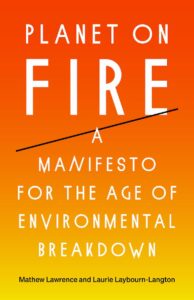
There’s an urgency to this manifesto, which feels appropriate to the scale of the climate crisis and the speed with which things are moving in the wrong direction. The ten-point manifesto essentially involves repurposing the economy so that financing is directed towards the necessary green transition instead of profit, and more value is given to things like care and cooperation.
This quick sketch isn’t doing it justice, but it’s a vision that sounds like common sense to me, and yet it’s incredibly radical in a world hurtling in the opposite direction. The book was published during the pandemic and makes a good case for using the rupture as an opportunity for rethinking the way forward, but it feels as if that moment has already passed.
Post-Growth Living: For an Alternative Hedonism by Kate Soper
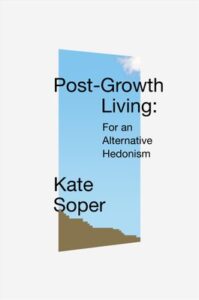
Kate Soper makes a valid and important point: environmentalists often talk about the sacrifices we need to make to live more sustainably, and yet the science shows that over-consumption does not lead to happiness. So is giving up the misery-inducing grind of consumer life really such a sacrifice? Soper suggests that it may, instead, be a chance to discover an alternative hedonism.
Light in Gaza ed. Jehad Abusalim
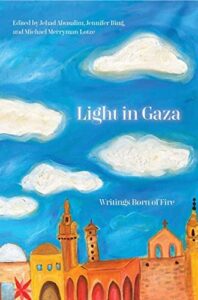
My position on Gaza is simple: I condemn all acts of violence. I reject the hypocrisy of defining non-state violence as terrorism while allowing states to butcher as many civilians as they like in the name of self-defence. When a US Senator openly calls for a place in which 2 million people live to be “levelled”, we’ve entered very dark times.
So I chose to read Light in Gaza, a compilation of writings by Palestinian people living in Gaza. It gives a fascinating insight into daily life in the Gaza Strip as seen through the eyes of the people living there. We learn about the travel restrictions and the violence of occupation, but we also learn about the culture, the bookshops, the libraries, the schools. We see that if this place is indeed levelled, it will be a crime that the world will never forget.
The Map of Salt and Stars by Zeyn Joukhadar
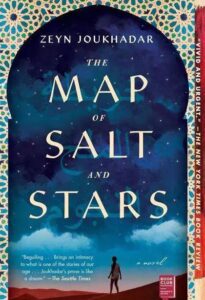
Have you ever read a book that had all the right ingredients but just didn’t amount to a satisfying whole? That was my experience with this book. It had a compelling dual narrative featuring contemporary Syrian refugees following the same path as a band of medieval mapmakers, it had some beautiful writing in places, and yet… I think perhaps that none of it felt real—it felt like a perfect literary confection, so carefully plotted and tightly controlled that the characters struggled to breathe.
Ecology and Socialism by Chris Williams
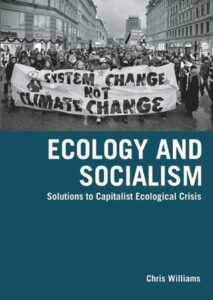
Back to finding solutions to climate change… This one covered much of the same ground as Planet on Fire, but from a slightly different angle. I liked the chapters on population growth, showing that population itself is not the problem—it’s how people live and how the resources are distributed. It’s an older book than I realised, so much of the climate science is already superseded, but most of the solutions will still be valid, if we ever start seriously trying to follow them.
How Was Your Month?
As usual, please let me know in the comments how your reading month was. I love hearing about your highlights and lowlights, as well as any comments on these books of course. Happy reading in November!
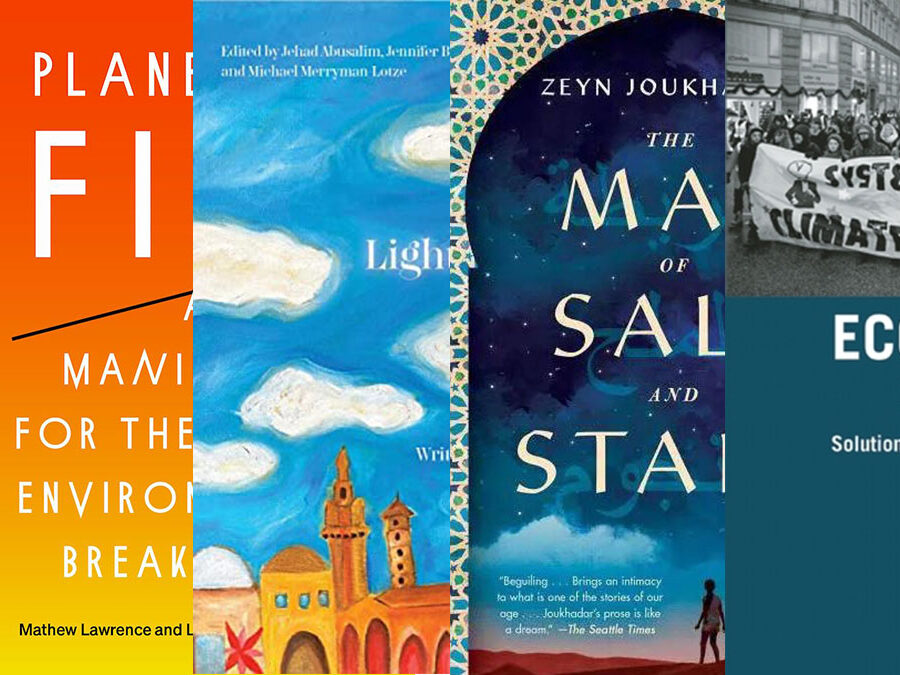

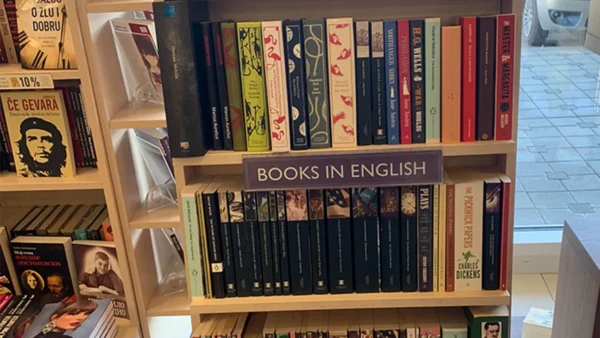
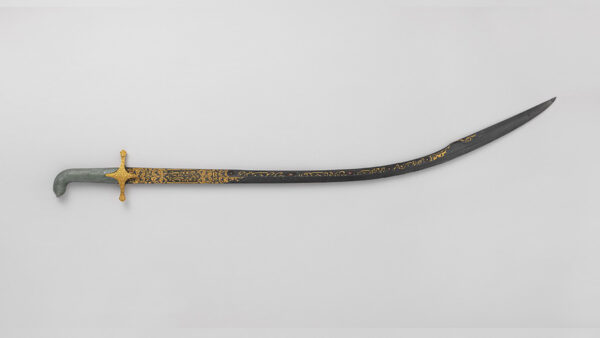
There are 8 comments
Oh, Post-Growth Living is on my TBR list, so I’m glad you liked it. I think we do talk too much about the things we will have to sacrifice and we never talk about the things we will gain. I’ve been trying to re-frame things when I talk to people and instead of saying things like, “I gave up my car” I say instead, “I decided to free myself from owning a car.”
I’m with you regarding what’s happening in Gaza right now. I condemn the horrific terrorist act of Hamas, but I also condemn the horrific response by Israel. Their blatant disregard and dehumanization of Palestinians is unconscionable, as is the behavior of a good many politicians in the US and other European countries.
I like that reframing, Stefanie. The idea that all consumption is good (no matter how wasteful and unnecessary it may be) is so deeply embedded in our language that it’s hard to escape from it. And cars are at the heart of it. In Europe, you often hear about cars being banned from city centres, which sounds very punitive. But the results I’ve seen in so many cities are wonderful—safe, liveable, walkable spaces, with less noise and pollution. So maybe we should talk about making our cities more liveable instead. I think the “Reclaim the Streets” movement was important for that reason. Language matters.
I like the sound of the Kate Sopher book, it’s going to take a fundamental re-imagining of what life should be rather than the ‘less’ but staying on our current path way of looking at the problem(s).
Sorry to hear that The Map of Salt and Stars disappointed. I just had that kind of a problem with a new book that retells the story of Scheherazade’s life, but gave up more than halfway through because the main characters remained so inert on the page. Oddly, the stories she told were done really well though.
It’s a good way of looking at the issue, and quite refreshing to be focusing on the positive things that will come out of the transition. I found that the book got a bit bogged down in places, but overall definitely worth a read.
It’s frustrating, isn’t it, when a book has so many good elements but just doesn’t quite work? I’m sorry you were disappointed too, but also kind of glad to hear it’s not just me 🙂
Thanks for this, Andrew. I totally respect your decision to read on the climate crisis and the crisis in the Middle East at the moment. If you do want to try fiction, I recommend Adania Shibli’s book Minor Detail, published by Fitzcarraldo, reviewed at Peak Reads. It’s a powerful fictional account of a crime in two time frames: the first in 1949, the second some 50 odd years later when the narrator sets out to investigate.
Hi Mandy, thanks very much for the recommendation! It’s funny, I just recently came across that book somewhere else (can’t remember where now) and thought it sounded excellent. So it’s good to hear you seconding the recommendation. I’ll go and read your review now.
“…reading is the only way I know to cope with things that feel overwhelming, and I find that the context provided by a good book often helps.”
It’s a kind of ordering, isn’t it. Still challenging, but what is the alternative. There is no alternative that isn’t going to sneak up behind you and smack you hard when denial ceases to be an effective coping mechanism. I’ve nearly always got a book or two about the climate crisis in my stack but, ironically, not right now: one of these is on my TBR but the others aren’t, so I’ll add them now. Have you already gotten to Not Too Late? Rebecca Solnit’s introductory essay is really simple and it’s good company. The World as We Knew It: Dispatches from a Changing Climate, which I read earlier this year, is another anthology that I really love. Originally I borrowed it but then I purchased a copy so I can revisit and share.
You’re right, denial definitely doesn’t work—well, maybe for a while, but not for long 🙂 I also find that too much day-to-day news just makes things harder to deal with. It’s important to know what’s going on, but I also need to step back and get a bigger picture, to make sense of things from a larger perspective.
Thanks for those recommendations. I haven’t read Not Too Late, but I loved Solnit’s Hope in the Dark, so I’ll definitely give that one a try. And The World as We Knew It sounds great too.